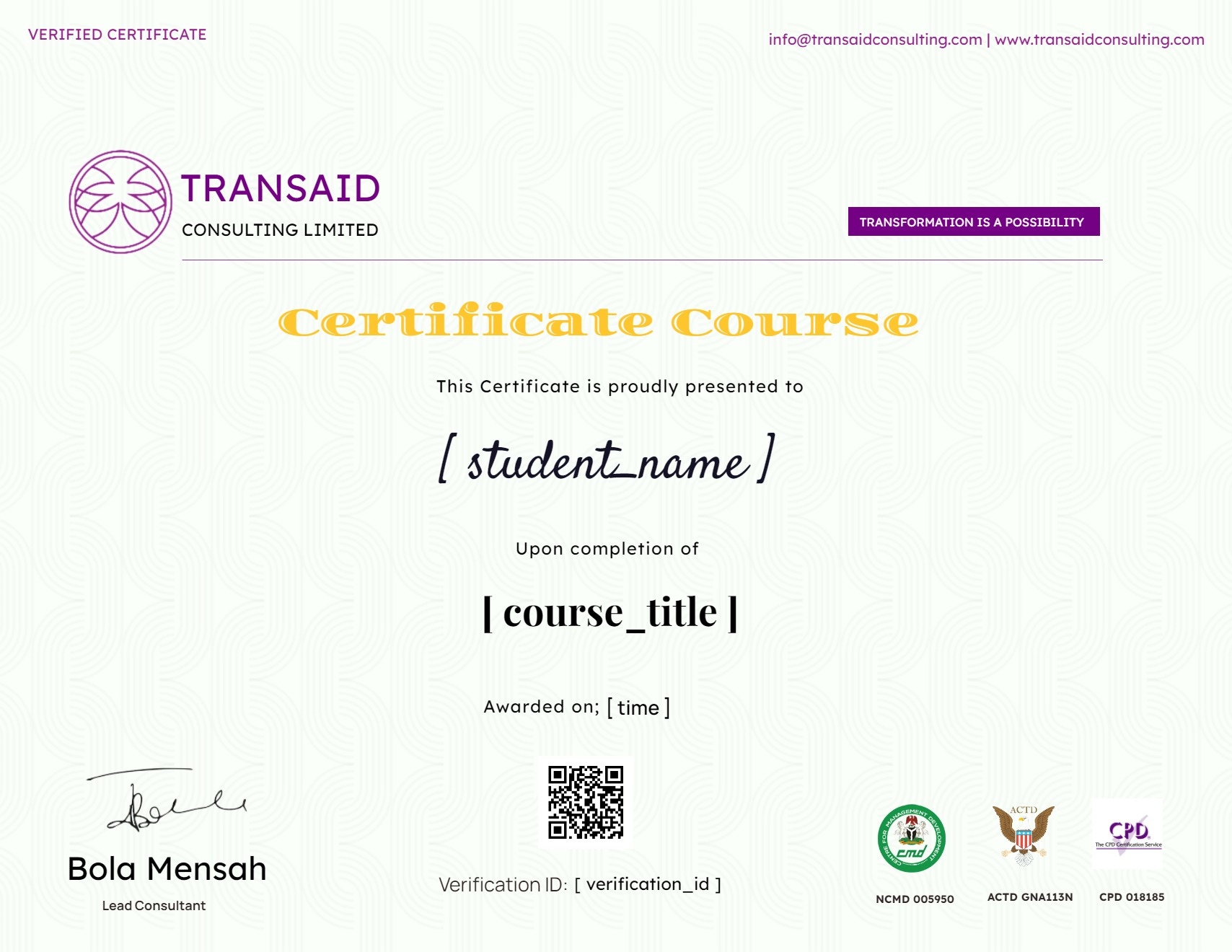Montessori Education Sensorial Approach

About Course
This course is aimed at equipping participants with the basic knowledge of the Montessori principles and materials including presentation methods. It also gives the trainee the practical knowledge required to effectively support both neurotypical students and students with special education needs in the Montessori classroom.
Course Content
Course Introduction
-
Introduction to Montessori Education
00:00
Dr. Maria Montessori
The Montessori Curriculum
History and Importance of Early Childhood Education
Early Childhood Education
Goals of Montessori Methods
Maria Montessori’s Theories of Child Development
Principles of Montessori Education
Montessori Method of Teaching
Summary of the class thus far
Senses of Montessori Education
Special Education Needs
Class Activity
Montessori Materials
Sensorial Activities
Conclusion
End of course quiz
Earn a certificate
Add this certificate to your resume to demonstrate your skills & increase your chances of getting noticed.

Student Ratings & Reviews
Excellent course content and course instructor. I highly recommend this course.